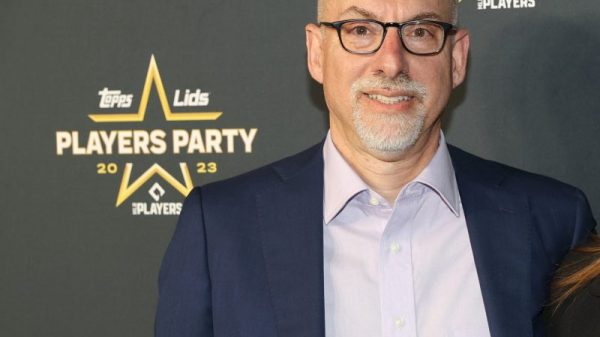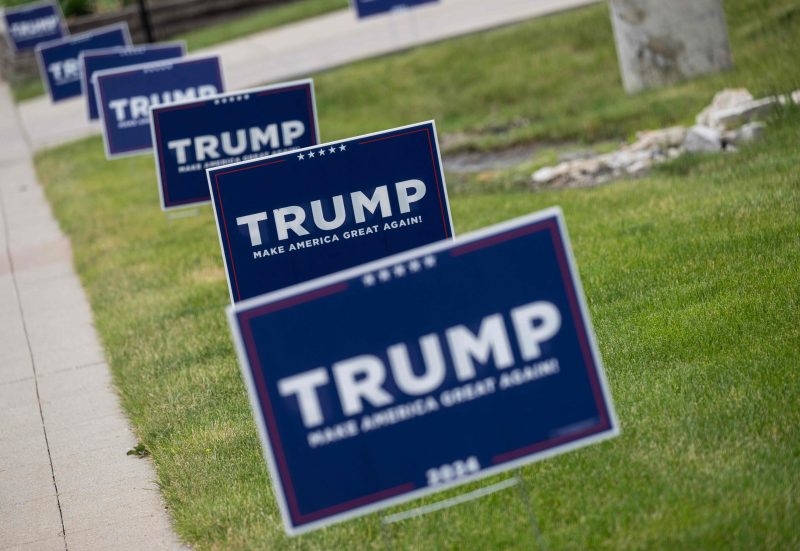Something that people are learning about artificial intelligence tools like ChatGPT or image generators is that they are very good at approximating what things are supposed to look like, but get only about 90 percent of the way there.
Generated images include extraneous hands or fingers because the tools know that bodies have appendages with appendages and that’s good enough. Text used in the images is jumbles of letters or letteresque things, because for something with no understanding of the meaning conveyed by text, it looks exactly the way that text looks. ChatGPT makes up believable-sounding answers to users’ questions — imaginary legal cases, for example — because it’s simply trying to re-create the sorts of answers it thinks users expect. It creates realistic information, not real information.
That’s usually good enough! The pictures get at the desired intent. What ChatGPT renders delivers what’s asked. The effect is impressive, despite the flaws.
This is also how Donald Trump approaches politics.
On Thursday, Trump was hosted by Fox News’ Sean Hannity for a “town hall” conversation in Iowa. In most respects, it mirrored the CNN town hall with Trump last month. Fox used a formalized set adhering to the nouveau-politics aesthetic of vibrant, shimmering reds and blues. It took questions for Trump from a cable-news personality and from members of the local audience.
And, of course, it included lengthy riffs from Trump himself in which he said things that, to a casual observer, seemed like the sorts of things that politicians say, citing the sorts of things that politicians cite — but which, upon close examination, are obviously inaccurate or inappropriate. An extra hand here, an invented source there, text-like ramblings. ChatGPT for president.
No one minded. One area where the Fox town hall differed from CNN’s was that it was more explicitly friendly to Trump. Hannity is, in the most objective assessment, a friend of Trump’s. In the most accurate sense, he’s a booster of Trump, an ally. While CNN’s Kaitlan Collins at least tried to interject some reality into Trump’s political-speech-like constructions, Hannity didn’t bother.
And while the audience at CNN was obviously pro-Trump, the audience at Fox was deafeningly so. Trump took the stage to chants of “USA!,” as though his existence was itself a patriotic testament to the nation. His jokes (often indistinguishable from insults) yielded raucous laughter and applause. When Hannity meekly suggested that some people — not him, of course! — thought Trump should “just tone it down a hair, stop a little of the name calling,” the audience booed.
There was another difference, too: It wasn’t live. When Trump appeared on CNN he made a number of false claims about the 2020 election, claims that could only be addressed after the fact by Collins. But Fox, on the hook for three-quarters of a billion dollars after settling a lawsuit focused on false fraud claims, wasn’t willing to take that risk. That meant some obvious edits, as when Trump, getting warmed up, was talking about what he planned to do in a second term.
“We would have paid down the debt, we would have cut the taxes,” Trump said. “It was going to be so beautiful—”
Cut to Hannity.
“Let me focus on the issues that — bread-and-butter issues that impact everybody,” he began his next question, suggesting that Trump had been talking about something else in the interim. Which, of course he was. It’s Trump. Later, he would claim of his 2016 victory that his opponents “probably did things in that election, too,” that “too” referring to previously mentioned commentary that viewers didn’t actually see.
The Hannity-Trump chat wasn’t without its moments of revelation.
For example, we were granted one of the all-time great distillations of Trump’s view of the various investigations into his actions during and after his presidency.
“All I know is this,” he told Hannity, “everything I did was right.”
That’s it, isn’t it? That’s the alpha and the omega, the beginning and end of what Trump wants to say about it. At other points he offered his typical defenses of his actions and the nefarious intent of his opponents, claims that have been debunked often and elsewhere.
At times, he did so with that typical ChatGPT cobbling-together of phrases and ideas that he and his audience knew by heart, even if they made no sense. But the audience wasn’t there to ensure that every hand had precisely five fingers. They were there to be inspired and energized by the image that Trump created for them, whipping up something familiar-looking right before their eyes.
The Fox town hall did provide a good example of how Trump simply says what he thinks people want to hear. You may have seen that earlier on Thursday when Trump took aim at his challenger Florida Gov. Ron DeSantis (R) by criticizing how often some people use “woke” as a pejorative.
“It’s just a term they use,” he said at an event. “Half the people can’t even define it. They don’t know what it is.”
Then there he was with Hannity.
“A lot of things going on with our military, with the woke and all this nonsense,” he said, “they’re not learning to fight and protect us from some very bad people. They want to go woke. They want to go woke. That’s all they talk about now.”
Hannity, of course, didn’t press him on it. The audience clapped. That’s how it works with Trump. DeSantis is bad because he says “woke,” and one audience claps. The military is bad because it’s woke, another audience claps. Trump has mastered the flow and vibe of political speeches even if his comments aren’t consistent over the course of a few hours.
Besides that and the “everything I did was right” line, there was one other thing that really jumped out from his discussion with Hannity. I’ll admit that this follows from my having spent years closely tracking what Trump says and does, but I think that it’s fairly astonishing once it has been picked out.
At the moment, Trump and his opponents are trying to figure out what the primary debates look like. The candidate has suggested in the past that he doesn’t need to participate in them, reflecting his approach both in 2020 and at the tail end of the debates in 2016.
That context is important for something he said to Hannity.
“All of a sudden people are talking about nuclear weapons all the time,” he said. “I wouldn’t let people talk about it. I had somebody come down from MIT. I was talking about that. My uncle was a great professor for many years at MIT, and I had somebody come down. And I say, ‘What would you say? Like, during the debate about nuclear weapons?’”
“He looked at me,” Trump continued. “He said, ‘Sir, don’t talk about them.’ I said, ‘Why?’ He said, ‘There’s nothing you can say. It’s so powerful and so extraordinary. The best thing you can do is not talk about them.’”
People familiar with Trump will recognize the “I had a smart uncle” line because he’s said it a lot before. They’ll also recognize the “sir” story, an easy tell for when Trump is making up an interaction with someone else. They may even have heard him use this line about not talking about nuclear weapons, something that emerged after Russia launched its invasion of Ukraine and since Trump has tried to imply that President Biden’s approach to the war is leading inexorably to World War III.
But here he says something I hadn’t noticed before: This anecdotal MIT expert told him not to mention nukes during a debate.
During the 2016 primary, Trump generally fared decently in debates because 1) he was onstage with numerous other candidates, all of whom got part of the time to talk and 2) he generally just did his anti-left, anti-elite riffs. But there was one moment that was obviously embarrassing for him, revealing just how little homework he had done.
“What’s your priority among our nuclear triad?” moderator Hugh Hewitt asked him during the December 2015 debate. The triad consists of America’s submarine, airborne and siloed nuclear arsenals, something you might not know — but you’re not running for president.
Trump didn’t know, either.
“First of all,” he replied, “I think we need somebody absolutely that we can trust, who is totally responsible, who really knows what he or she is doing. That is so powerful and so important.”
Then a riff about Iraq. Hewitt pressed him: But what about the triad?
“I think, for me, nuclear is just the power,” Trump replied. “The devastation is very important to me.”
Hewitt turned to Sen. Marco Rubio (R-Fla.) who eagerly answered the question as intended.
It was humiliating. It spurred articles critical of Trump and his candidacy. And now Trump, it seems, has an explanation: Some MIT dude said, “Sir, don’t talk about it.”
If the intent here was to explain this gaffe away — which, given Trump’s eternal lack of subtlety, seems like a fair assumption — it reinforces why Trump doesn’t want to debate. Why risk having some other Florida politician clown him before a large television audience?
After all, ChatGPT is only seen as making easy mistakes when someone who knows what they’re doing looks at its output.



























